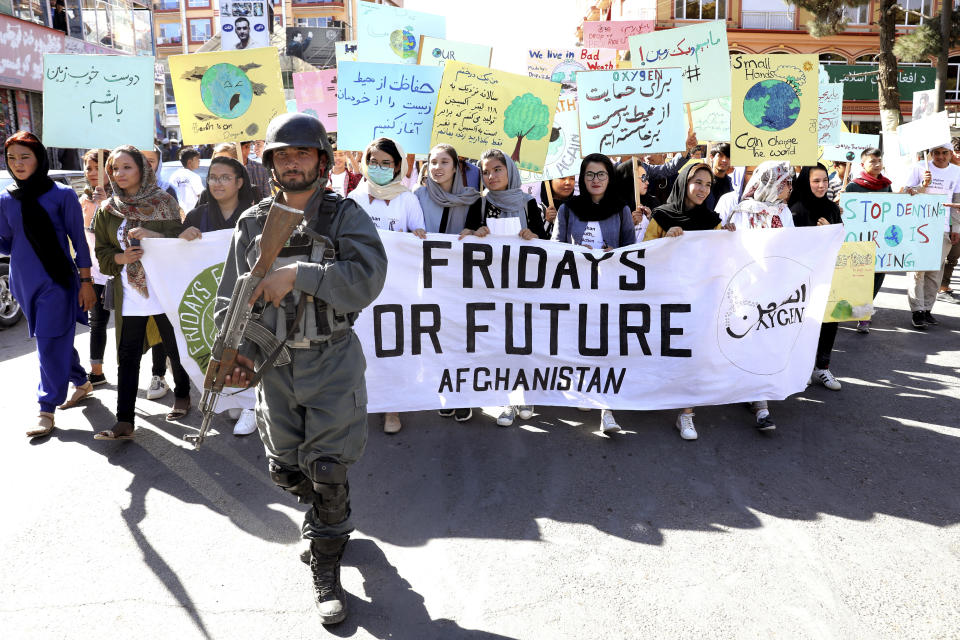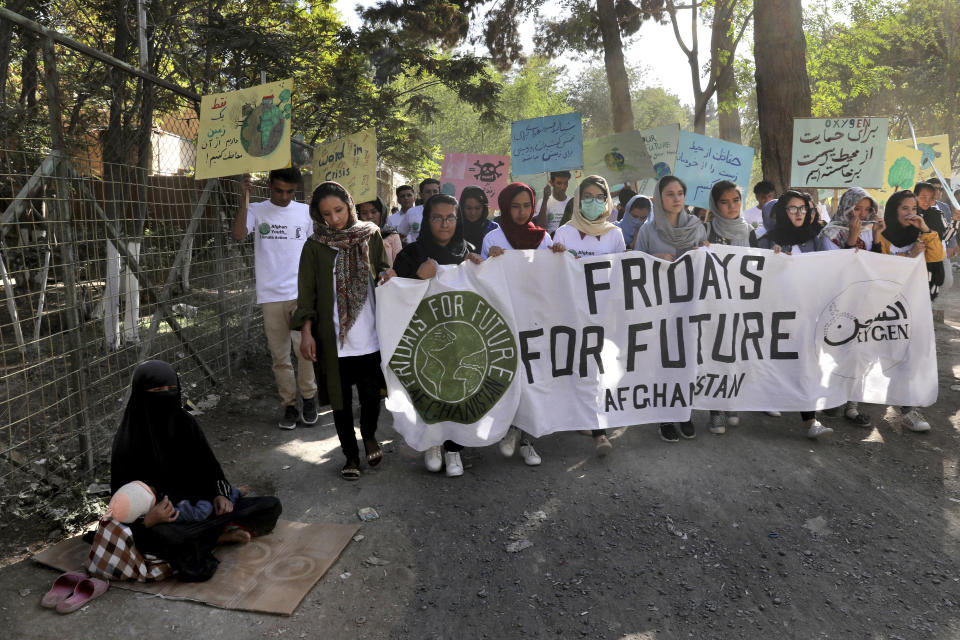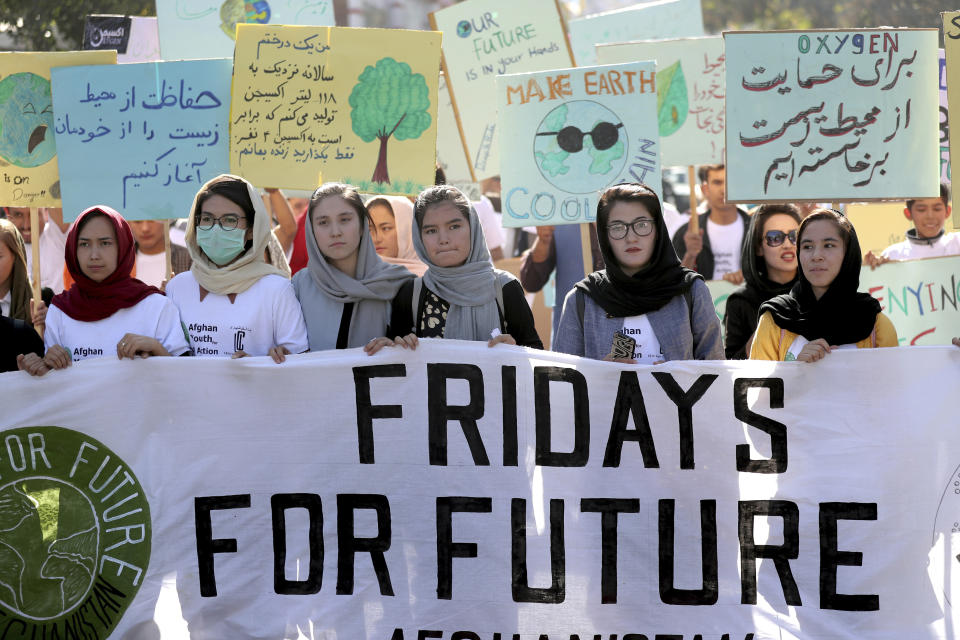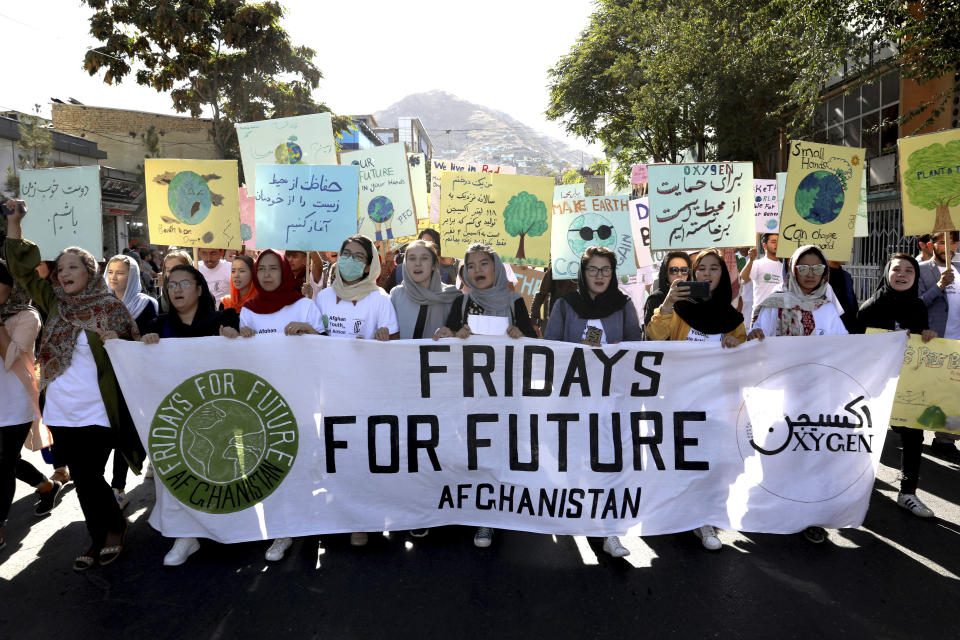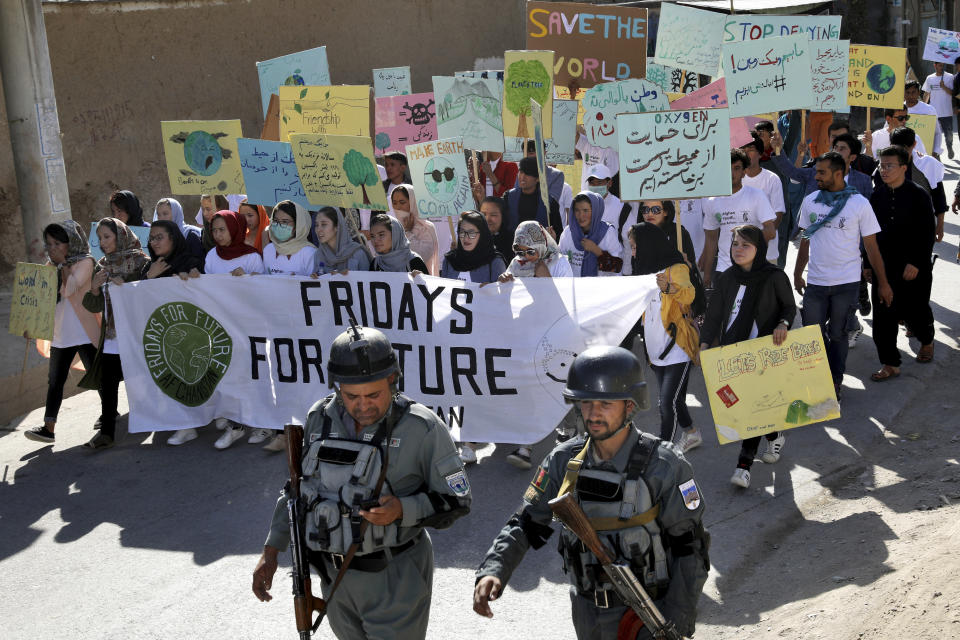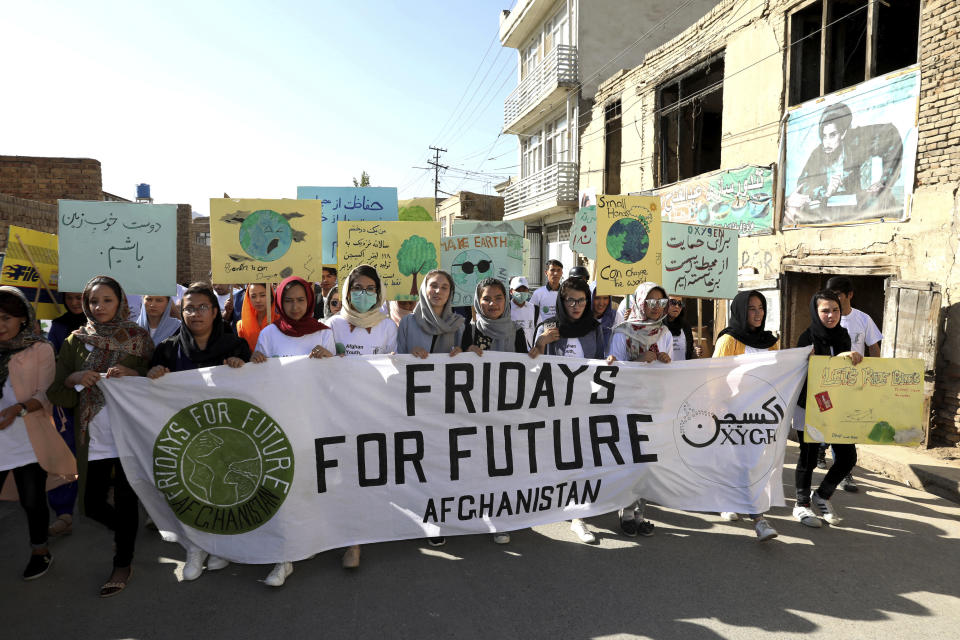Protected by army men, Afghan youth protest climate change
KABUL, Afghanistan (AP) — Worried that if war doesn't kill them, climate change will, around 100 young Afghans marched Friday to protest climate change. They were guarded by troops atop an armored personnel carrier and on foot, rifles at the ready.
Protesters risked a march through the center of the capital, Kabul, despite nearly daily attacks by insurgents, in order to participate in a global strike against climate change. Although it resembles a city under siege in most parts, Kabul is also among the worst polluted cities in the world.
Fardeen Barakzai, one of the organizers and the head of the local climate action group called Oxygen, said Afghanistan's youth wanted to do their part in the fight against global warming and wanted to be counted among those who heeded teenage climate activist Greta Thunberg's Fridays for Future Movement.
"The goal is that we should have the same voice, like the other countries that are working for climate," said Barakzai has he slapped posters on a motorcycle rickshaw outfitted with a loudspeaker to make sure Kabul residents understood their message.
"We know war can kill a group of people, but climate can kill everyone," he said.
Kabul has been shattered by four decades of war and decaying infrastructure, despite billions of dollars in international aid that came into Afghanistan after the collapse of the Taliban government in 2001.
But Afghanistan's public health ministry says more than 3,000 people die each year of pollution-induced illnesses in Kabul and more than 70 per cent of patients in hospitals are suffering from respiratory-related illnesses. Most of these can be traced to the air pollution that's particularly bad during the dry winters.
"Away from the glare of publicity, Afghans — and in particular Kabul's six million residents — are wrestling with another silent but deadly killer: air pollution," said the U.N. Environment Program in a report released earlier this year.
According to the same report, Afghanistan's National Environment Protection Agency was quoted as saying: "With an increase in air pollution, we are seeing a new generation whose growth is stunted."
Barakzai, who says he's 23 years old "according to stories my mother tells me," said climate change poses the greatest challenge. "We aren't afraid from the war, we are more afraid from the climate change, that is why we want to give our whole energy to go against climate change," he said.
Watching from the street as the protesters marched passed waving their "stopping pollution is the best solution" posters, an elderly Hajji Abdul Razak Wahabzada said the marchers made him proud. He said he admires their bravery while marching down the street in Kabul, but also that as young people they have the education and knowledge to consider the effect of climate change.
"They are our young generation and they are not thinking about the gun. They are not thinking about war, they are thinking about making our country better," he said.
At the compound where the marchers gathered to make their posters and prepare for the event, Sarah Azizi said their families worry when they march. She quickly added that they worry each time she steps outside, never sure she will return.
"But I want to march because if I don't survive this war, at least I would have done something for the next generation that they can survive," she said, packing away the remaining posters to take to the march.
